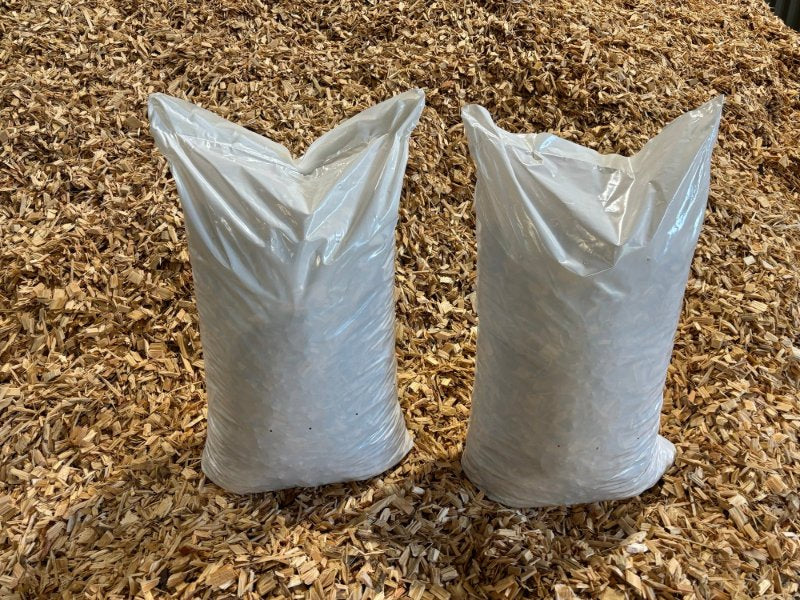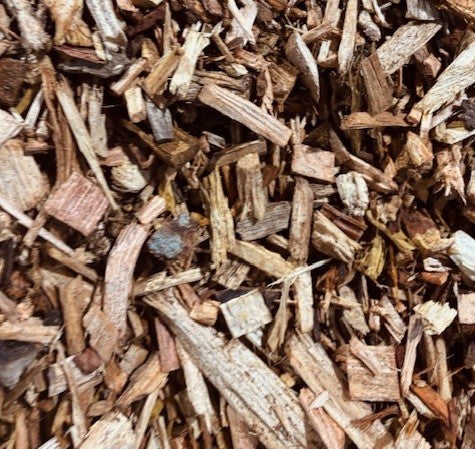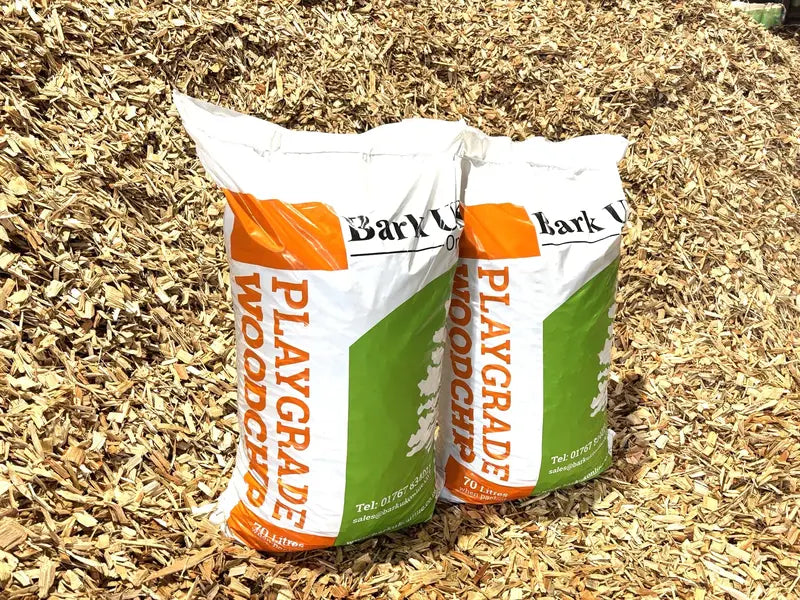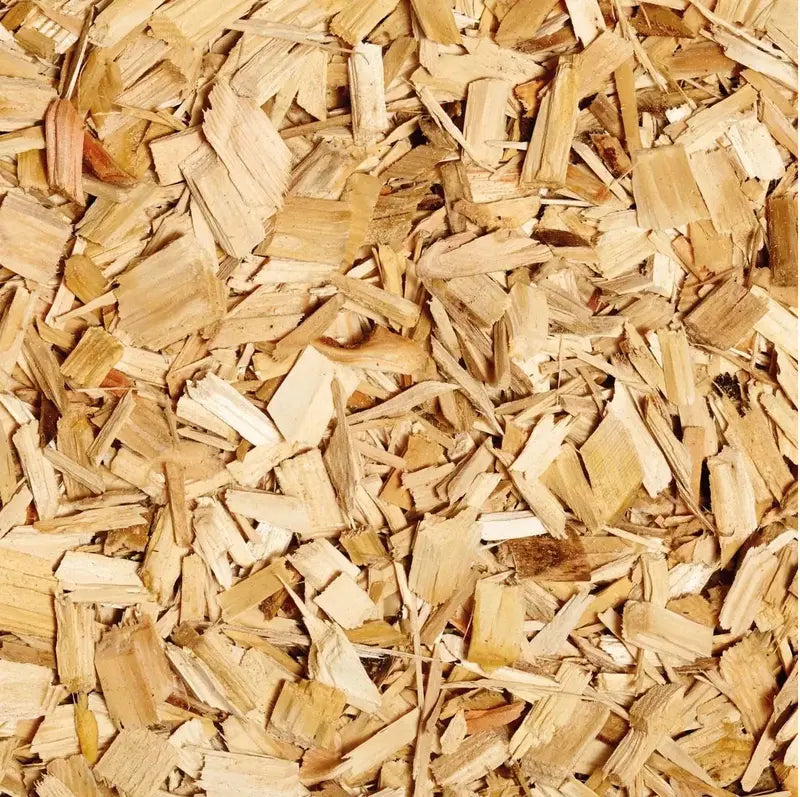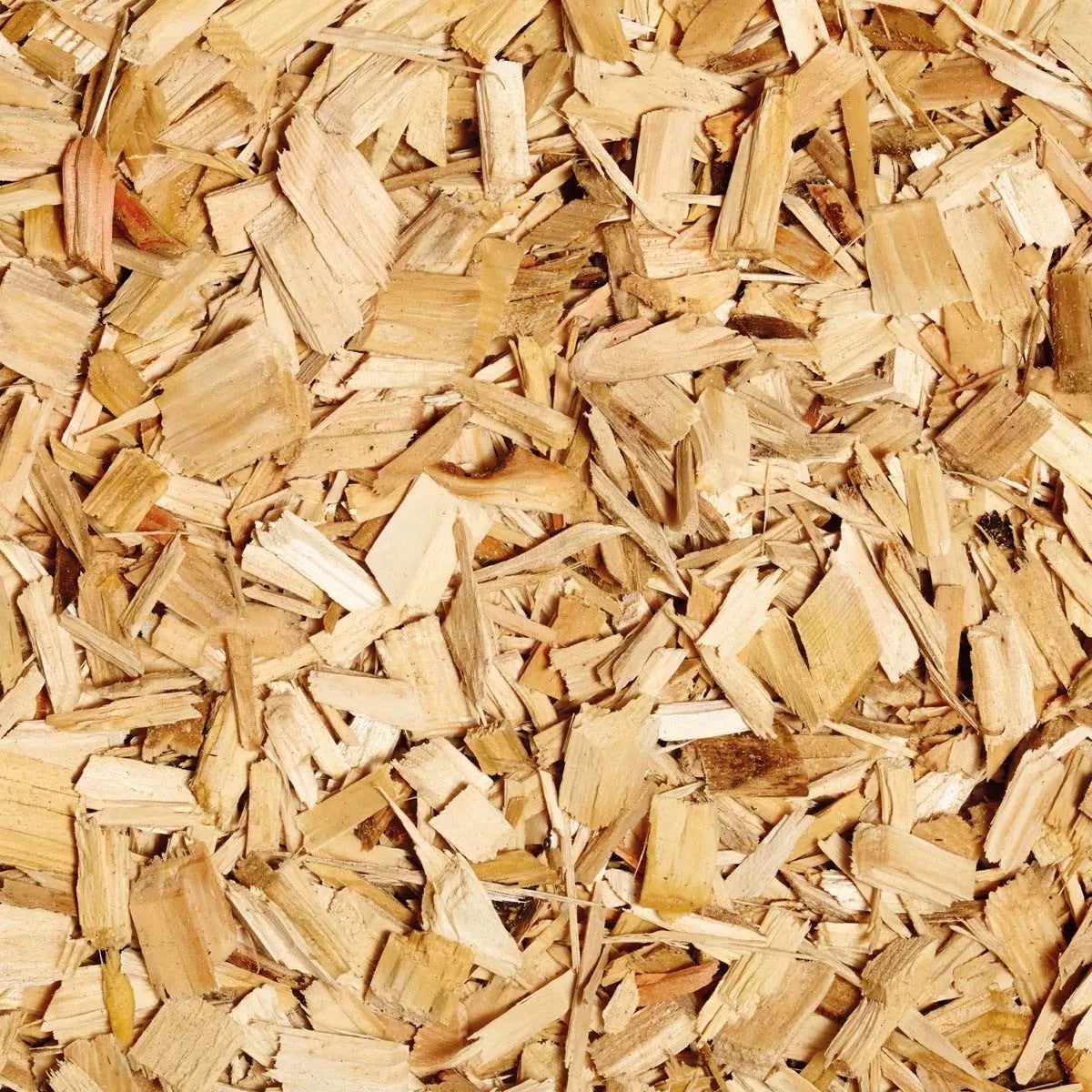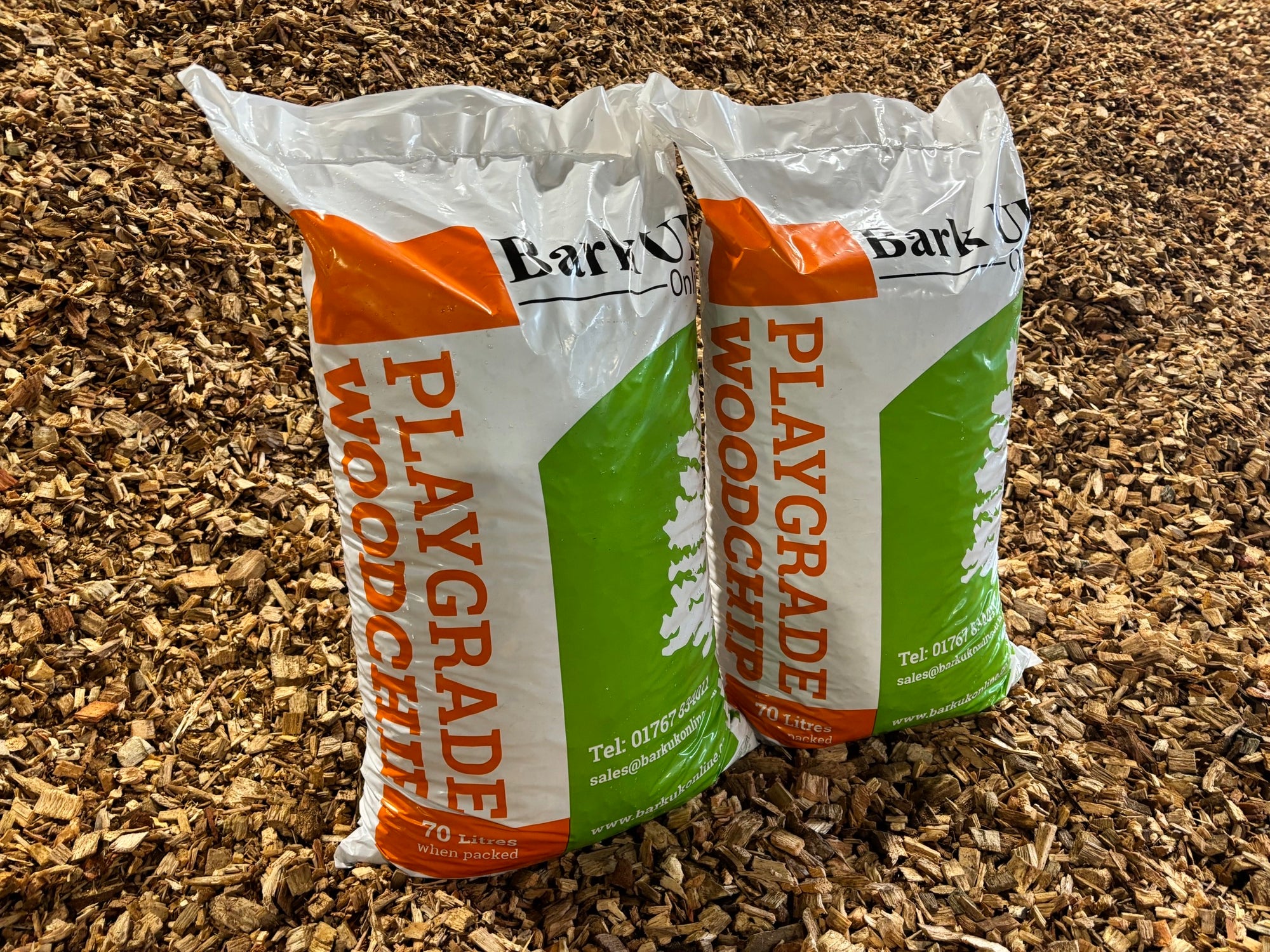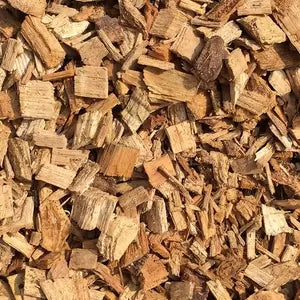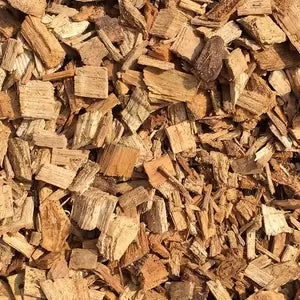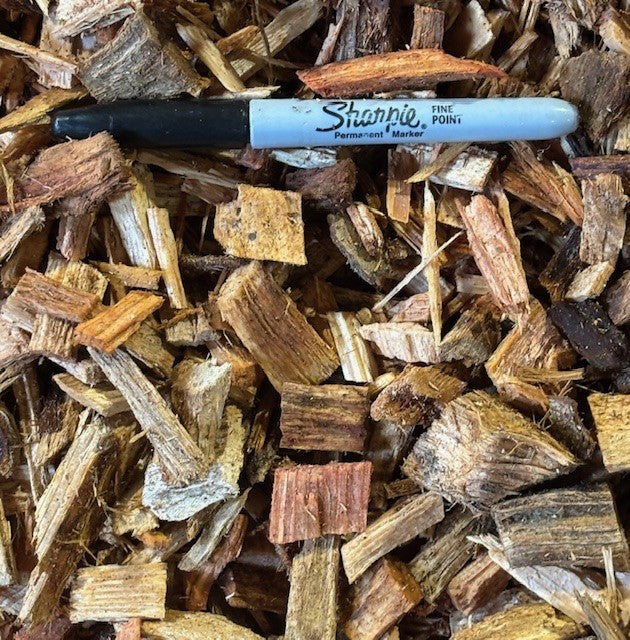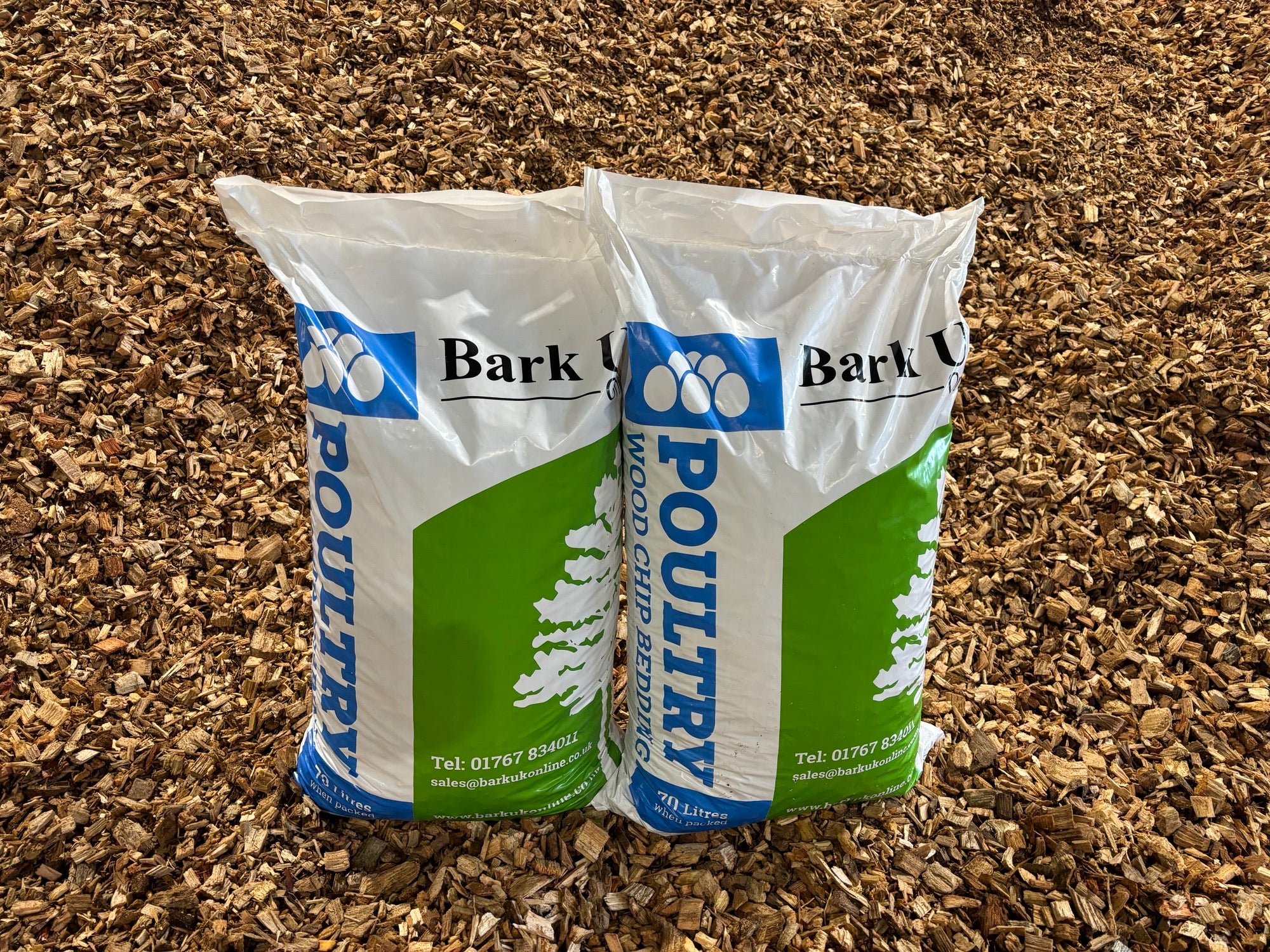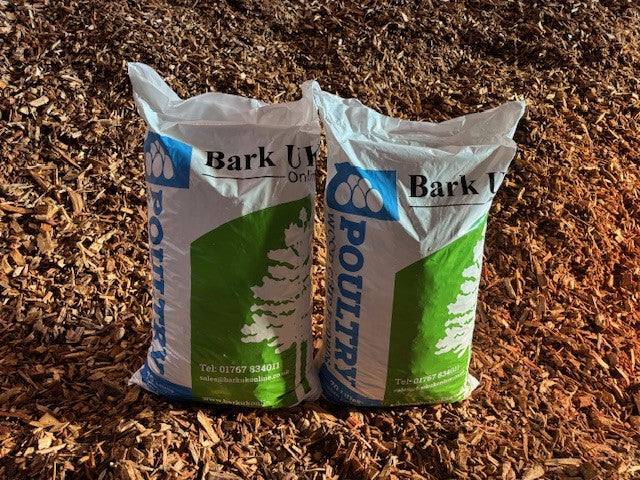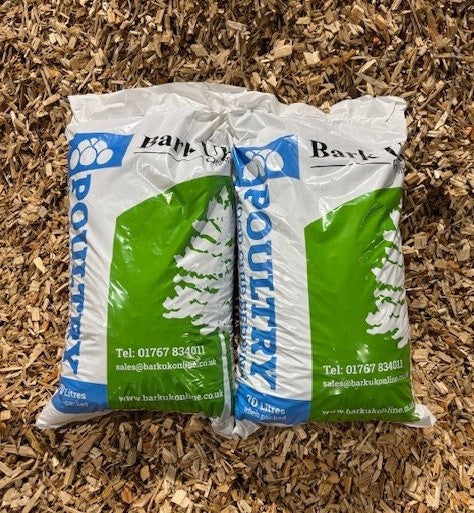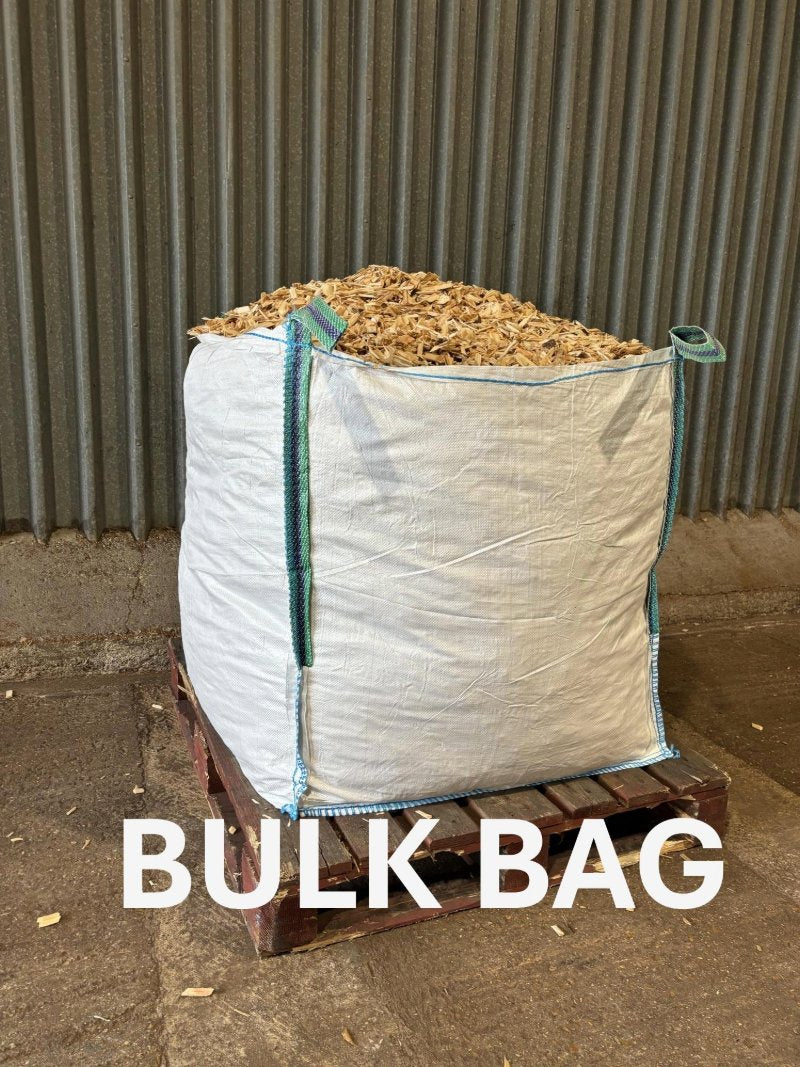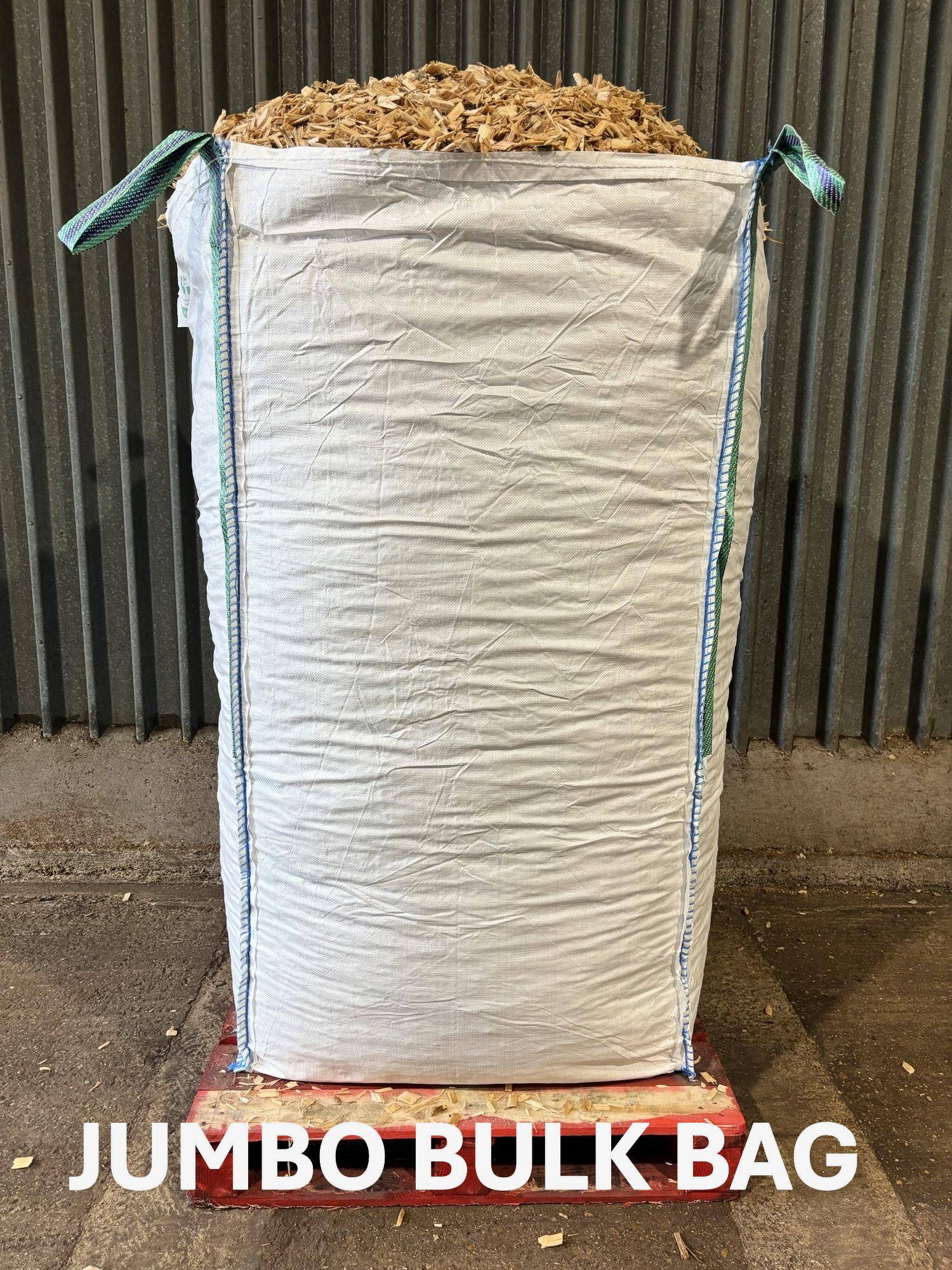Winter is upon us, and it can be a challenging time for your flower beds. Reduced sunlight, cold temperatures, heavy rain, frost, and snow can all threaten plant health and soil quality. A little preparation, however, is all you need to winter-proof flower beds and borders and ensure their vibrancy come springtime. Here’s how mulch and potting soil can protect your plants through the colder months and nurture your garden for the season ahead.
What Is Mulch?
Mulch is a layer of material that can be spread over flower beds and borders, forming a protective barrier. It can be made from organic or inorganic materials, and each of these options serves a different function.
Inorganic Mulch: Typically used for weed control or decorative purposes, inorganic mulches do not decompose and remain in place long-term. They can be made from gravel, landscaping fabric, or plastic sheeting.
Organic Mulch: Organic mulches break down over time, enriching the soil with nutrients as they do so. They are typically made from bark, straw, wood chips, compost, shredded leaves, grass clippings, pine needles, or a combination of these. Some organic mulches, like pine needles, help slightly acidify the soil, while others like compost help neutralise the pH of the soil, supporting plant health.
What Does Mulch Do?
The benefits of mulch for gardens are numerous, ranging from protection to improved aesthetics:
Regulates Extremes of Temperature: Plant roots are delicate structures, sensitive to high and low temperatures. The insulating barrier that mulch provides helps moderate extremes of temperature, keeping soil cooler in summer and helping it retain warmth in winter.
Enhances Soil Health (Organic Mulch): As organic mulch breaks down, it infuses the soil with nutrients essential for plant growth. Earthworms are attracted to the organic matter, and beneficial microbial activity is promoted by its decomposition. Earthworms’ burrowing helps improve the structure and aeration of the soil, while microorganisms further break down organic material, enriching the soil.
Helps Soil Retain Moisture: By forming a layer between the soil and the air, mulch helps reduce evaporation, conserving moisture. As a result, plants are better able to remain hydrated, even in hot weather.
Inhibits the Growth of Weeds: Mulch blocks sunlight from reaching the soil, preventing weeds from germinating and growing. By suppressing weed growth, your plants will benefit from exclusive access to nutrients and water, free from competition.
Protects Plants From Frost: A layer of mulch forms a protective shield between the soil and freezing, frosty conditions above ground. The stable environment this creates is essential for the well-being of fragile root structures during harsh winters.
Prevents Soil Erosion: Heavy winds and rain can blow and wash away soil, leaving flower beds and borders exposed and depleted. Mulch forms a barrier between topsoil and the worst of the elements, defending against erosion.
Improves Soil Aggregation: Soil aggregates are clumps of soil particles held together by organic matter and microbial activity. Their formation helps the structure of the soil remain porous, allowing for good water infiltration, and also inhibits erosion.
Prevents Soil Compaction: Heavy rain and frequent footfall can both cause soil to become compacted, and dense soil is not ideal for plant growth. A mulch layer disperses pressure from above, so the soil beneath can remain loose and uncompacted. This facilitates easy root development and promotes beneficial microbial growth.
Provides a Clean and Tidy Aesthetic: A uniform top layer of mulch, whether organic or inorganic, gives a neat and orderly appearance to garden beds. This gives a well-finished and appealing visual effect, and your chosen garden plants can remain the focal point of the space.
What to Do With Flowers Over Winter
Some especially delicate flowering plants, bulbs, and tubers will need to be lifted from the soil and stored in a greenhouse or cold frame over the colder months. Where this isn’t possible, winter-proofing with mulch and potting soil can help protect them. When frosts are forecast, wrap exposed stems and leaves in a few layers of horticultural fleece or old newspaper for some extra insulation.
What Is the Best Mulch to Protect Plants Over Winter?
The best mulch to winter-proof your beds will depend on what plants you have growing there.
-
Straw or hay offers excellent insulation for vegetable and strawberry beds.
-
Shredded leaves are similarly beneficial for flower beds and perennials, offering protection from cold temperatures while biodegrading and infusing the soil with nutrients. Layering these with compost provides a nutrient-rich and insulatory layer of protection against the elements.
-
Wood chips and bark mulch are an excellent long-lasting choice of mulch for larger areas and around trees and shrubs.
-
Pine straw made from pine needles is ideal for acid-loving plants like blueberries, rhododendrons, and azaleas. It helps protect their roots while maintaining soil acidity levels.
Can Mulch Be Used in Flower Beds? - Top Tips for Winter Mulching
Mulch can be used to great benefit in flower beds, both for winter-proofing and infusing the soil with valuable nutrients. Here’s how to use mulch to best effect:
Apply in Winter, Before the Ground Freezes: Applying mulch too early can prevent plants from hardening off, and allow rodents to nest. Once temperatures have dropped in winter, and soil is moist and cold but not frozen, it is the optimal time to mulch.
Prepare the Soil Before Mulching: Remove weeds and pull out any annuals, then level the surface of the soil to eliminate dips and troughs that might collect excess mulch.
Apply a 2-4” Layer of Mulch Over Soil: A deeper layer will be required if using less dense mulches like grass cuttings or straw, while a thinner layer of more compact mulches like compost will suffice. Sprinkle it around delicate plants and under shrubs using your hands, and avoid compressing it. A thicker layer offers better insulation and inhibition of weed growth but more than 2” of thick mulch will also make it harder for spring bulbs and plants to grow.
Use a Rake or Hoe to Ensure Even Coverage Across Wide Open Areas
Leave Plant Crowns and Stems Exposed: Mulch in contact with trunks and stems can promote rot and pest infestations. Avoid placing mulch in direct contact with plant structures, and leave a gap of 2-4” between mulch and woody stems.
Replenish Mulch if Levels Drop: If by midwinter your layer of mulch has diminished through decomposition and erosion, replenish it to maintain protection. Once spring arrives and all risk of frost is gone, you can remove excess mulch or dig it into the soil.
How to Use Potting Soil for Winter-proofing
The optimal aeration and drainage that potting soil offers make it a valuable resource for your garden through winter. Mix it into the soil in your flower beds and vegetable patch, and add a layer to tubs and containers to enjoy these benefits:
Prevent Root Rot and Damage: Waterlogged soil can cause roots to start decomposing, and when that water freezes it damages plant structures. Potting soil ensures proper drainage, preventing water from accumulating and avoiding these issues.
Prevent Soil Compaction: The good aeration potting soil promotes ensures soil isn’t compacted by heavy rainfall, allowing microbes to flourish and roots to breathe. Even during their dormant winter period, plants need this access to nutrients and good airflow.
Deliver Essential Nutrients: As plants emerge from winter, they require a good supply of nutrients to flourish into spring. The slow-release fertilisers that enrich potting soils provide an excellent source of nourishment for plants emerging from dormancy as the weather warms.
Winter can be harsh, but your garden can weather it easily with the help of mulch and potting soil. Now is the perfect time to insulate roots, infuse soil with nutrients, and improve soil quality, ensuring your plants are poised to flourish come springtime. For all your winter-proofing needs, and whatever your mulch of choice, at Bark UK you’re sure to find what you’re looking for. Visit us today to prepare your garden for winter and beyond.
Make sure to check out our great value garden packs if you need to cover larger areas- our bulk-buy mulches come in up to 2000L bags and like all our products are available with free delivery.
SHARE ON :





